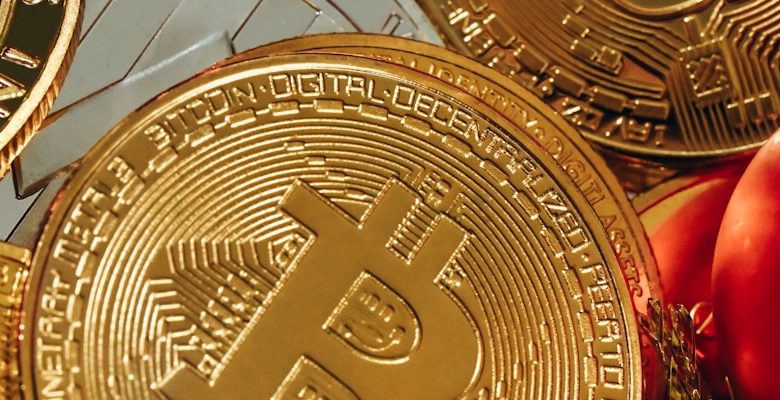How to Send and Receive Cryptocurrency Safely

- Understanding the basics of cryptocurrency transactions
- Choosing a secure cryptocurrency wallet
- Protecting your private keys
- Using secure online exchanges
- Implementing two-factor authentication
- Educating yourself on common scams and frauds in the cryptocurrency world
Understanding the basics of cryptocurrency transactions
Cryptocurrency transactions involve the transfer of digital assets from one wallet to another. To understand the basics of these transactions, it is essential to grasp the concept of public and private keys. Public keys act as the address for sending or receiving funds, while private keys are used to access and control the funds in a wallet. It is crucial to keep private keys secure and never share them with anyone to prevent unauthorized access to your cryptocurrency.
When sending cryptocurrency, you will need the recipient’s public key or wallet address. It is important to double-check the address to avoid any errors, as transactions on the blockchain are irreversible. Once you have entered the correct address and amount to send, you will need to confirm the transaction using your private key. This process varies depending on the cryptocurrency wallet you are using, but it typically involves entering a password or PIN code.
Receiving cryptocurrency is a straightforward process. Simply provide the sender with your public key or wallet address, and they can initiate the transfer. Once the transaction is confirmed on the blockchain, the funds will appear in your wallet. It is recommended to check your wallet regularly to ensure that all transactions are accurate and up to date.
Overall, understanding the basics of cryptocurrency transactions is essential for safely sending and receiving digital assets. By keeping your private keys secure, double-checking addresses, and staying informed about the transactions in your wallet, you can navigate the world of cryptocurrencies with confidence.
Choosing a secure cryptocurrency wallet
When sending and receiving cryptocurrency, it is crucial to choose a secure wallet to protect your digital assets from potential threats. There are various types of cryptocurrency wallets available, each with its own level of security and convenience. It is essential to research and select a wallet that meets your needs and provides the necessary security features to keep your funds safe.
One option is a hardware wallet, which is considered one of the most secure ways to store cryptocurrency. Hardware wallets are physical devices that store your private keys offline, making them less vulnerable to hacking or malware attacks. These wallets provide an extra layer of security by requiring physical access to the device to authorize transactions.
Another option is a software wallet, which is a digital application that can be installed on your computer or smartphone. While software wallets are convenient and easy to use, they are more susceptible to online threats such as phishing attacks or malware. It is essential to choose a reputable software wallet from a trusted source to minimize the risk of security breaches.
Additionally, you can opt for a paper wallet, which involves printing out your private keys and storing them in a secure location offline. Paper wallets are considered highly secure since they are not connected to the internet and are less vulnerable to cyber attacks. However, it is crucial to keep your paper wallet safe from physical threats such as theft or damage.
Regardless of the type of wallet you choose, it is essential to follow best practices for securing your cryptocurrency, such as enabling two-factor authentication, using strong passwords, and keeping your wallet software up to date. By taking these precautions and selecting a secure wallet, you can send and receive cryptocurrency safely and protect your digital assets from potential threats.
Protecting your private keys
When it comes to sending and receiving cryptocurrency, it is crucial to protect your private keys to ensure the security of your digital assets. Private keys are essentially the passwords that allow you to access your cryptocurrency holdings and make transactions. If your private keys fall into the wrong hands, your funds could be stolen. Here are some tips to help you safeguard your private keys:
- 1. **Never** share your private keys with anyone or store them online where they can be easily accessed by hackers.
- 2. Consider using a hardware wallet to store your private keys offline, providing an extra layer of security.
- 3. **Regularly** back up your private keys and store them in a safe place, such as a secure **vault**.
- 4. Be cautious of phishing scams and **ensure** that you are entering your private keys only on legitimate and secure websites.
By following these best practices, you can minimize the risk of unauthorized access to your cryptocurrency funds and **protect** your investment. Remember, the security of your private keys is paramount in the world of cryptocurrency.
Using secure online exchanges
Cryptocurrency transactions can be made securely through online exchanges. These platforms facilitate the buying, selling, and trading of digital assets. When using secure online exchanges, it is essential to choose reputable and trustworthy platforms. Look for exchanges that offer two-factor authentication to add an extra layer of security to your account. Additionally, make sure to use unique and strong passwords to protect your login credentials. Regularly monitor your account activity and report any suspicious transactions immediately to the exchange.
Another important aspect of using secure online exchanges is to enable withdrawal confirmations. This feature requires users to confirm withdrawals via email or SMS, adding an extra level of protection against unauthorized transactions. It is also recommended to use a hardware wallet or cold storage solution to store your cryptocurrency securely offline. By diversifying your storage methods, you can reduce the risk of potential hacks or security breaches.
In conclusion, utilizing secure online exchanges is crucial for safely sending and receiving cryptocurrency. By following these best practices, you can protect your digital assets and minimize the risk of falling victim to cyber threats. Stay informed about the latest security measures and be proactive in safeguarding your investments. Remember, security should always be a top priority when dealing with cryptocurrency transactions.
Implementing two-factor authentication
Implementing two-factor authentication is a crucial step in ensuring the security of your cryptocurrency transactions. Two-factor authentication adds an extra layer of protection by requiring not only a password and username but also something that only the user has on them, i.e., a piece of information only they should know or have immediately to hand – such as a physical token.
Educating yourself on common scams and frauds in the cryptocurrency world
It is crucial to educate yourself on prevalent scams and fraudulent activities in the world of cryptocurrency to ensure that you can safely send and receive digital assets. Scammers are constantly coming up with new schemes to deceive unsuspecting individuals, so staying informed is essential to protect your investments.
One common scam to be aware of is phishing, where scammers attempt to obtain your sensitive information, such as private keys or login credentials, by posing as a legitimate entity. Be cautious of unsolicited emails or messages asking for personal information and always verify the source before providing any details.
Another prevalent scam is Ponzi schemes, where individuals are promised high returns on their investments but are actually paid with the money of new investors. It is essential to research investment opportunities thoroughly and be wary of any promises that seem too good to be true.
Additionally, be cautious of fraudulent initial coin offerings (ICOs) that may not have a legitimate business plan or team behind them. Before investing in an ICO, make sure to research the project, team members, and whitepaper to ensure its credibility.
By educating yourself on common scams and frauds in the cryptocurrency world, you can better protect yourself and your assets from malicious actors. Stay informed, stay vigilant, and always prioritize security when sending and receiving digital currencies.



